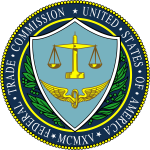The $18 million settlement MoneyGram International has agreed to pay U.S. consumers who were tricked into transferring $84 million to the U.S. and Canada for fraudulent schemes is the tip of the iceberg. My video on this is here.
Worse, WatchdogNation believes, is the allegation leveled against MoneyGram by the Federal Trade Commission that 10 percent of MoneyGram’s Canadian agents (about 134 employees) were involved in the scams as willing partners.
But that’s not even the worst: MoneyGram executives were warned and did nothing. Company whistleblowers were disciplined or fired.
In damning language about the Minnesota-based company, the FTC states that MoneyGram “ignored warnings from law enforcement officials and even its own employees that widespread fraud was being conducted over its network, claiming that proposals to deal with the problem were too costly and were not the company’s responsibility.
“The company even discouraged its employees from enforcing its own fraud detection policies or taking action against suspicious or corrupt agents,” the FTC states. “Some employees who raised concerns were disciplined or fired.”
During one month alone, the FTC says 8 out of 10 wire transfers through MoneyGram of $1,000 or more were fraudulent. You can read all the FTC’s legal documents here.
As first reported in the Dave Lieber column in the Nov. 6, 2009 Fort Worth Star-Telegram, the scams involved fake lotteries and sweepstakes, con jobs working as mystery shoppers, Internet purchases, scams involving loans, e-mail, romance, employment ads and, one of the worst, the infamous grandparents scam where grandparents falsely believe they are wiring money to stranded grandchildren in Canada.
FTC spokesman Mitchell Katz says those scams are among the most evil because they prey on the elderly, many of whom already face financial troubles in tough economic times.
“They play on their emotions and financial insecurity to trick them out of their money, and that’s just not right,” Katz says. “That’s why we thought this was such a great case.”
The allegations against Minnesota-based MoneyGram go far deeper into the corporate culture than crooked agents.
FTC spokesman Katz tells The Watchdog: “Businesses have to keep in mind that you can’t just look the other way and pretend it’s not happening. You need to have a compliance program in place to make sure that the people working for you and doing your business are complying with the law.”
MoneyGram spokeswoman Lynda Michielutti released a statement:
“We don’t agree with the allegations made by the FTC. But we believed that it was in the best interest of our company and our consumers to put this matter behind us and focus our resources on delivering our valued service to consumers rather than battling it out through a long and costly trial.”
Some of the witnesses at that trial, undoubtedly would include, some of the 65 Canadian and U.S. employees of MoneyGram who already have been charged with crimes by law enforcement agencies in Canada and the U.S.
Under the settlement, MoneyGram must pay $18 million to victims and make the following changes:
– conduct background checks on all employees
– educate its employees on consumer fraud
– monitor its agents
– discipline those who break rules
– provide a clear fraud warning on its money transfer forms
– maintain a system for receiving consumer complaints that federal agents can periodically review.
WatchdogNation.com TIP
If you were scammed in a MoneyGram wire transfer, here’s how to apply for your part of the $18 million settlement:
1. File a written written complaint with MoneyGram. Contact them at 1-800-666-3947 to get started.
2. File a complaint with the Federal Trade Commission by visiting Web site ftc.gov or by calling toll-free 1-877-382-4357.
3. File a complaint with your state’s Attorney General.
Source: FTC
Don’t fall for it
Don’t wire money to:
– someone you don’t know
– someone claiming to be a relative in the midst of a crisis who wants to keep the transfer a secret
– someone who says a money transfer is the only form of payment accepted
– someone who asks you to deposit a check and send some of the money back
Source: FTC
What MoneyGram now tells customers:
On MoneyGram’s Web site, clear warnings are now issued that many of the reasons Americans were using the company’s service were fraudulent. This is worth reprinting in full from MoneyGram’s Web site:
Don’t Send Money to Strangers
MoneyGram never recommends sending money to a stranger. Any monies received by a stranger cannot be recovered and unfortunately you will not get your money refunded back to you.
Lottery/Sweepstakes
Have you ever received a communication stating that you won something (money or a prize), but before you can collect you will need to send money to pay for taxes, customs, or any fees? However, you didn’t actually buy a ticket or enter a sweepstakes. This is a SCAM.
Don’t send transfer money to the people who are stating you have “WON” something but need to send them funds before collecting your winnings. You will never have to pay money up front to receive any legitimate lottery or sweepstakes winnings
Internet Purchases
Have you found something online that interests you – a puppy, a car, an apartment for rent or any item for sale? Does the price for the item seem to be too good to be true and are you being asked to pay for the item through a MoneyGram money transfer?
Unfortunately, this is a SCAM.
Do not send money for the item to the seller. They may even send you a letter or e-mail of authentication telling you that you have purchased the item but need to wire funds first. Do not send the money. It is a SCAM. You will receive no merchandise. Once money is wired and received it cannot be recovered and unfortunately you will be at loss for any money transferred.
Loan Scams
Did you receive an e-mail or mailing about getting a loan? Were you asked to send money for loan fees, taxes, service fees, advance payments or any other reason? This is a SCAM.
Do not send money to a loan company to obtain a loan. If the money is wired and received it can not be recovered. You will be at a loss for the money you have sent.
Checks/Money Orders in the Mail
Have you received a check or money order in the mail with instructions to first cash it at your bank and then send some of the funds to someone else through a MoneyGram money transfer? If so, the check/ money order is counterfeit and your bank will make you cover the loss.
Be aware that counterfeit checks are very hard to identify. You may have been promised a percentage of the check for employment or because of an over payment. This is a SCAM. Do not send the money and do not cash the check
E-mail Scams
Have you received a random e-mail from someone who needs help getting money back into the United States? They may claim to be ill or inheriting a company and asking you to help them by wiring money – Do not send money to this person as this is a scam. Any money sent to the stranger will be lost and you will not get a refund.
Did you receive an e-mail from MoneyGram? The only time you will ever receive an e-mail from MoneyGram is if you sent money through www.emoneygram.com. If you receive an e-mail stating that a payment/or funds have been sent to you, and you didn’t use eMoney Transfer, the e-mail is fraudulent.
Romance Scams
Did you meet someone through a personal ad, e-mail, chat room or an instant message? Did they ask you to send them money for travel or to help them financially? Do not wire the money – This is a SCAM. Any money received by this person cannot be recovered and you will be at loss for any money sent.
Newspaper Ads
Have you found something for sale in the classifieds or any type of newspaper ad? Did they ask you to pay for the item through a MoneyGram money transfer? This is a SCAM.
Do not use a money transfer to purchase an item from a stranger. It is not safe to use a money transfer service when trying to purchase an item
Grandparent/Relative Scam
Did you receive a phone call from a grandchild or a family member? Are they in despair because they have been detained in Canada for not having a fishing license or for catching a protected species of fish? Have they been in a car accident? Are they asking for money to pay fines or for car repair? Did a relative call because they need money for a family member in medical need or for medicine? THIS IS A SCAM! Use precaution when sending money in this situation. These callers can request that you send money anywhere in the world. If you cannot verify with your family member that they are requesting the money and aren’t sure about the transaction, do not send the money. You will be at a loss for any money that is sent.
Finally, here is the latest FTC consumer alert on money transfer scams.
You can learn more about the latest scams and ways to protect yourself in the groundbreaking book by the author called Dave Lieber’s Watchdog Nation: Bite Back When Businesses and Scammers Do You Wrong, winner of two national book awards in 2009 for Social Change.


